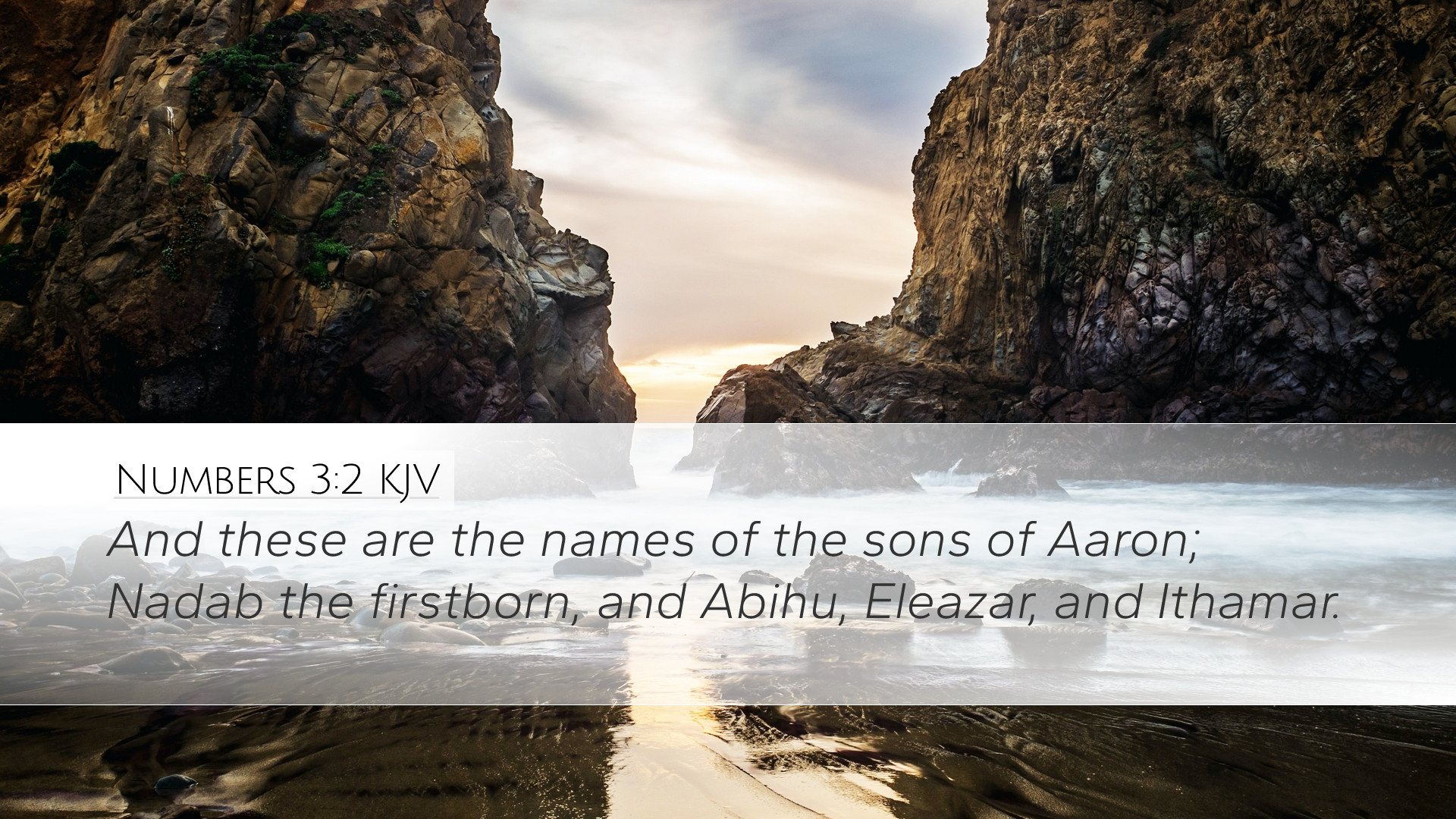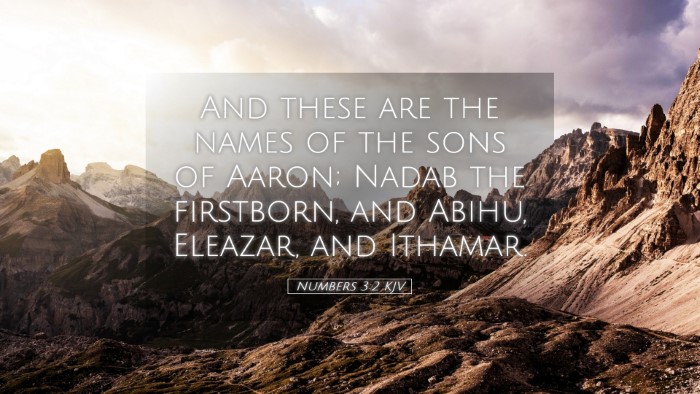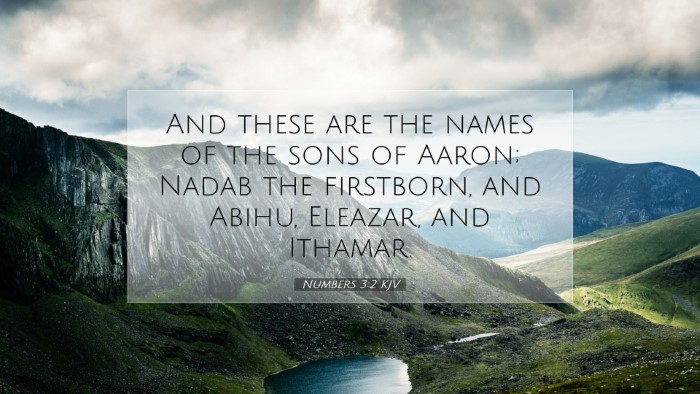Commentary on Numbers 3:2
Numbers 3:2 states: "And these are the names of the sons of Aaron; Nadab the firstborn, and Abihu, Eleazar, and Ithamar." This verse introduces the sons of Aaron who play a critical role in the priestly system established within Israel. Their names and subsequent actions are pivotal in understanding the priesthood's duties and the significance of holy conduct.
Insights from Matthew Henry
Matthew Henry emphasizes the importance of lineage and the divine appointment of the priestly line. He notes:
- Divine Selection: The establishment of a distinct priesthood is not merely a social construct but a direct command from God. The sons of Aaron were chosen because of their father's unique role as high priest, indicating a legacy of holiness.
- Nadab and Abihu: While discussing Nadab and Abihu, Henry warns against the perils of unholy conduct. Their tragic narrative serves as a cautionary tale of the consequences of approaching God with irreverence.
- Role of the Priests: The priests, as represented by these sons, had the vital role of mediating between God and His people, a charge that must be approached with the utmost seriousness and reverence.
Insights from Albert Barnes
Albert Barnes underscores the historical and theological ramifications of this verse by reflecting on the significance of Aaron’s sons:
- Family Structure: Barnes notes the family dynamic within the priesthood, highlighting how priestly duties were inherited, reinforcing the seriousness and sanctity of sacred responsibilities.
- Their Distinct Roles: Each of Aaron's sons had specific tasks. The differentiation of their functions foreshadows the structure within the future Levitical priesthood.
- Consecration and Holiness: The mention of their names leads into a broader discussion about the necessity of consecration, as they were to be set apart from the other tribes for holy service. This reflects the principle of holiness that God demands from those who serve Him.
Insights from Adam Clarke
Adam Clarke provides additional depth by exploring the cultural implications and the symbolic meanings embedded in the names of the sons:
- Nadab and Abihu: Clarke interprets their names as indicative of their character traits, noting how their actions later demonstrate a departure from the reverence befitting their positions.
- Significance of Names: He points out that in biblical times, names held profound meaning and were often reflective of one's destiny or purpose. The choice of names highlights not only individual identity but also their roles in the divine narrative.
- The Plan for Redemption: Clarke connects the priesthood back to God’s redemptive plan, indicating that their ministry was vital in foreshadowing Christ as the ultimate High Priest.
Thematic Considerations
The inclusion of Aaron’s sons in Numbers 3:2 serves numerous thematic functions important for biblical interpretation:
- Legacy and Succession: The verse illustrates the continuation of God's covenantal promises through hereditary lines, reinforcing the idea that God works through families and generations.
- The Sacred and the Profane: The contrast between the holiness required for service and the potential for failure (as demonstrated by Nadab and Abihu) sets a framework for understanding God’s standards of holiness.
- God’s Sovereignty: By naming specific individuals, the text showcases God’s sovereign choice in leadership and service, a principle that resonates throughout the entirety of Scripture.
Conclusion
Numbers 3:2 is a significant verse that opens not only the narrative of Aaron's lineage but also establishes foundational principles regarding the holiness of the priestly role. Through the insights of respected commentators like Matthew Henry, Albert Barnes, and Adam Clarke, we can glean profound theological truths about God's design for mediators and the seriousness of divine service. For pastors, students, theologians, and scholars, reflecting on this verse invites a deeper understanding of God’s expectations for those He calls to serve in sacred roles. As we consider the names and roles of Aaron’s sons, we are reminded of the serious nature of holiness and the powerful legacy of faith passed from one generation to the next.


